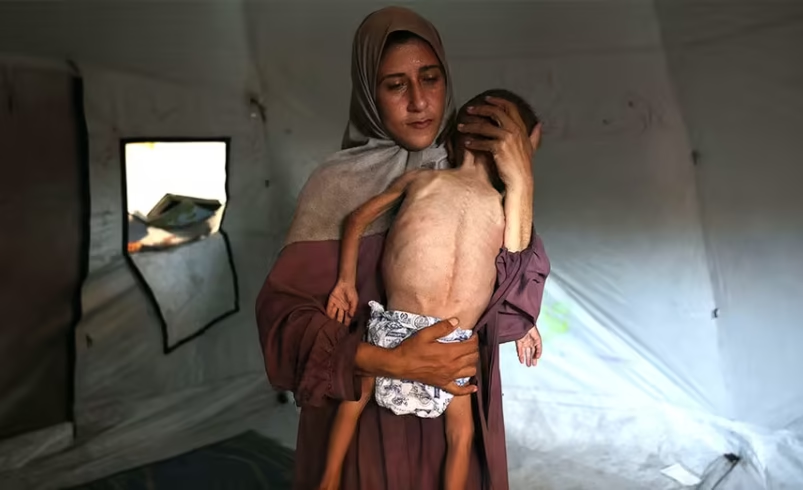Media Outlets Criticized for Misleading Coverage of Israel-Gaza Conflict
- August 4, 2025
- 0

The New York Times faced backlash for a misleading cover photo of a malnourished Gazan child, Mohammed Zakaria al-Mutawaq, used in a story about the Israel-Hamas conflict. The image, which appeared alongside a headline about starvation in Gaza, failed to mention the child’s genetic disorder. Critics accused the Times of omitting crucial context, leading to a narrative that framed Israel negatively. The Times later issued an editors’ note acknowledging the oversight and updated the article to include information about Mohammed’s pre-existing health issues.
The New York Times was not alone in its missteps. Other major outlets like the BBC and NPR also published similar images without providing full context. This pattern of reporting has contributed to a broader media narrative that often portrays Israel as disproportionately responsible for civilian suffering in Gaza. Following Hamas’ attack on Israel on October 7, 2023, several reports were retracted or corrected after initially siding with Palestinian claims.
A significant incident involved claims by the Hamas-controlled Gaza Health Ministry that Israel bombed Al-Ahli Baptist Hospital, resulting in over 500 casualties. Subsequent investigations revealed that the explosion was caused by a misfired rocket from Islamic Jihad. Media outlets like CNN and The Washington Post initially reported the Hamas narrative but later issued corrections after further evidence emerged.
These incidents highlight ongoing challenges in media coverage of the Israel-Gaza conflict. The need for accurate reporting is critical, as misinformation can influence public perception and international relations. Media organizations are urged to exercise greater diligence and skepticism when reporting on complex geopolitical issues to avoid perpetuating biased narratives.